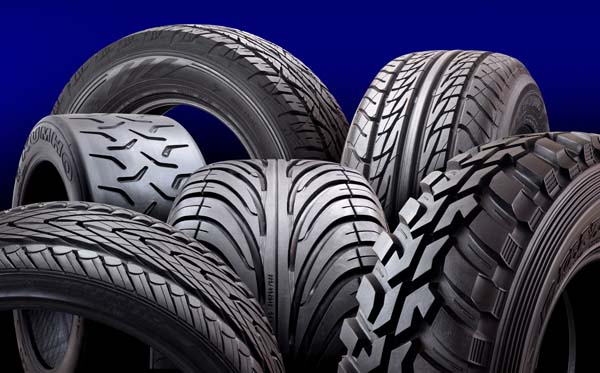<p style="text-align: justify;">Selecting the proper tires for your vehicle is important. Aside from enhancing handling and steering, tires affect gas mileage, suspension performance, and wear-and-tear on other vehicle parts. These other components can prove costly and difficult to fix if an improper tire type is used. Some variables to consider when buying tires include tire size, speed rating and performance, tire cost relative to overall value and likely lifespan of the vehicle and terrain the tires will typically encounter.</p>
<h2 style="text-align: justify;">Tire Size</h2>
<p style="text-align: justify;">Check with vehicle requirements regarding tire size. Some vehicles such as trucks or SUVs require specialty tires. If varieties of tire types are viable options, consider specialty winter-weather tires or more general all-weather tires, depending on likely driving demand during the year.</p>
<h2 style="text-align: justify;">Speed and Performance</h2>
<p style="text-align: justify;">Speed rating and performance is another metric to consider. Tires labeled as “high performance” may not last as long as general all weather tires and are usually more expensive. However, they offer much better grip and handling at extreme driving conditions. Therefore, drivers should consider the weather that tires will face, the length and duration of commutes, as well as the kind of performance requirements that the tires should withstand.</p>
<p style="text-align: justify;"><img class="aligncenter wp-image-13110 size-full" src="https://medusamagazine.com/wp-content/uploads/2014/08/help-on-buying-good-quality-used-tires.jpg" alt="Where The Rubber Meets The Road: The Essentials To Tire Selection And What To Consider" width="600" height="373" /></p>
<h2 style="text-align: justify;">Cost</h2>
<p style="text-align: justify;">Tires are part of a vehicle. If that vehicle is older, has not been maintained up to standards and/or is not expected to last long for whatever other reason, buying high-quality tires may be an unnecessary investment. All new tires are “safe” for regular driving, with winter tires providing superior grip in snowy or icy conditions. Of course, safety is important, but at some point, marginal returns kick in. A high-performance tire placed on a vehicle that cannot “perform highly” for any considerable length of time is not an efficient use of funds. If you happen to drive very little, or live in an area that does not see much snow, buying used tires might be a good option. Mike&#8217;s Auto Towing sells used tires up in Kamloops in Canada. This is a pretty good example of just how many different options there are around the country if you&#8217;re looking to save money and pick up used tires.</p>
<h2 style="text-align: justify;">Terrain</h2>
<p style="text-align: justify;">When selecting tires, consider the terrain. Smooth, paved roads will not inflict the kind of wear-and-tear on a tire as would dirt road or off-road driving. Of course, to some extent, a general all-purpose tire will serve well under harsh conditions, but such “lifetime” is much shorter for an improper tire and thread type. Not to mention questions of handling, steering and suspension that factor into tire performance under varied terrains.</p>
<h2 style="text-align: justify;">Conclusion</h2>
<p style="text-align: justify;">Some vehicles, such as tractors and long-haul trucks, will have special requirements requiring expertise in the subject above and beyond the metrics covered here. However, as a general guide, this article should help readers navigate the tire purchasing landscape successfully.</p>

Where The Rubber Meets The Road: The Essentials To Tire Selection And What To Consider
